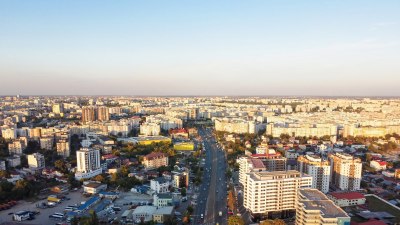The Scams Every Traveler Should Know About
Learn about common scams targeting travelers and how to avoid them on your journeys.

Image by beststudio on Freepik
Traveling opens up a world of experiences and adventures, but it also presents opportunities for unscrupulous individuals to take advantage of unsuspecting tourists. In this article, we will explore various scams that every traveler should be aware of, ensuring that your travels remain enjoyable and safe.
1. The Classic Pickpocket
Pickpocketing is perhaps the oldest trick in the book, but it still remains a significant concern for travelers around the globe. Crowded places like markets, public transport, and tourist attractions are prime spots for pickpockets. They often work in teams, distracting their victims while another person steals from them. To avoid falling victim to this scam, always keep your belongings secured to your body. Consider using anti-theft bags, and be mindful of your surroundings, especially in crowded settings.
2. Fake Charity Scams
While many charitable organizations genuinely seek to help those in need, some individuals exploit this goodwill for personal gain. Travelers may encounter people soliciting donations for fake charities or causes, often in tourist-heavy areas. They'll use emotional appeals to tug at your heartstrings and make you feel obligated to give. To avoid falling prey to this scam, research any charities beforehand or donate to well-known organizations instead of giving cash directly to individuals.
3. Overpriced Taxi Rides
Transportation scams, particularly involving taxis, are prevalent in many tourist destinations. Some drivers may take longer routes to charge higher fares, while others may not use a meter at all. To protect yourself, research typical fare prices beforehand. Use official taxi services recommended by your accommodation or a reputable ride-sharing app that offers upfront pricing. Always confirm the estimated fare before getting into the taxi.
4. The 'Free' Gift Scam
This scam often involves a local approaching you with a friendly demeanor, claiming to offer you a 'free' gift, such as a bracelet or flower. Once you accept, they will demand payment or pressure you into giving a tip. To avoid this, be cautious about unsolicited gifts. Politely decline any offers presented by strangers.
5. Credit Card Skimming
Credit card skimming is a sophisticated scam that occurs when thieves use discreet devices to capture your card information while you make a transaction. These devices can be placed on ATMs, gas station pumps, or point-of-sale terminals. To stay safe, inspect the card reader for any unusual attachments before swiping your card. Use cash whenever possible and check your bank statements regularly for unauthorized transactions.
6. Accommodation Scams
While booking online has made travel planning more accessible, it has also led to an increase in accommodation scams. Fraudsters might create realistic-looking listings on popular travel sites or social media, only to take your deposit and disappear. To avoid this, always research accommodations thoroughly. Read reviews from other travelers, verify the address, and use trusted sites. If the deal seems too good to be true, it probably is.
7. The ATM Scam
When withdrawing cash from an ATM abroad, be wary of individuals who appear to be helpful. They may offer to assist you during the transaction but may actually be attempting to steal your PIN or your cash. Always use ATMs in well-lit, crowded areas and avoid those that appear to be tampered with. Cover your PIN with your hand while entering it to protect your information.
8. Distraction Techniques
Scammers often use distraction tactics to steal from you. This can include someone deliberately causing a scene or asking for directions while an accomplice picks your pocket. To mitigate this, remain vigilant and avoid engaging with multiple people at once. If someone is clearly trying to distract you, keep your belongings close and be cautious.
9. Rental Car Scams
Rental car companies are another area where travelers can encounter scams. Hidden fees, unexpected charges for insurance, and inadequate maintenance of vehicles can all turn your trip sour. Before renting a car, carefully read the rental agreement and understand the insurance options. Always inspect the vehicle for pre-existing damage and document it before leaving the lot.
10. The 'Helpful' Local
Another common scam involves locals offering unsolicited assistance, especially in busy areas. While many are genuinely helpful, there are those who will insist on guiding you while demanding a fee. These individuals may even lead you to expensive shops or restaurants where they receive a commission. Be cautious of strangers offering assistance without being asked, and if you need help, seek out formal services or reputable guides.
11. Currency Exchange Scams
Exchanging money at airports or non-official currency exchange booths can lead to unfavorable rates and hefty fees. Some may also provide counterfeit bills as change. To avoid losing money, research the current exchange rates and use official banks or well-known exchange services. Always count your cash before leaving the counter.
12. The Lottery or Prize Scam
Receiving a phone call or email informing you that you've won a prize in a lottery you didn't enter can be tempting, but it's often a scam. The sender will typically ask for personal information or require you to pay fees to collect your winnings. To avoid this scam, ignore such messages and don't share personal details with unknown sources.
13. Travel Agency Scams
Be cautious when booking travel through agencies that seem to offer unbelievably low prices. Scammers can seize your personal information and money without providing any legitimate service in return. Research travel agencies before booking, and consider using reputable and established companies. Always read reviews and verify their authenticity.
14. Fake Guides and Tours
In tourist-heavy areas, fake tour guides may try to lure you with seemingly attractive tours at discounted prices. Once you've paid, you may find that the tour is poorly organized or doesn't exist at all. To avoid falling for this scam, book tours through reputable companies, verify guides’ credentials, and check online reviews.
15. Social Media Scams
Social media platforms are rife with scams, especially while traveling. Be careful when posting personal travel plans or location updates, as this can make you a target for thieves. Scammers might attempt to befriend you under false pretenses, seeking personal information or even financial assistance. To protect yourself, limit the amount of personal information you share online, and adjust privacy settings on your social profiles.
16. Local Scams by the Region
Different regions of the world may have unique scams that travelers face. It's beneficial to research common scams specific to your destination before traveling. For example, in Italy, tourists may encounter the infamous 'Roma' scam, where a stranger approaches and offers to 'help' with directions, leading them to overpriced shops. In Thailand, there are scams involving tuk-tuk drivers who claim that certain attractions are closed, offering to take travelers to other 'better' places instead. Knowledge of these scams can help you recognize them and avoid being caught off guard.
17. The Importance of Awareness
Ultimately, awareness is the most powerful tool you have against scams while traveling. Keeping a vigilant eye on your belongings, staying informed about common scams in your destination, and trusting your instincts can significantly reduce your likelihood of falling for a scam. Avoid being overly trusting and remember that while most travelers are good people, there are a few individuals who might not have the best intentions.
18. How to Stay Safe While Traveling
To further enhance your travel safety, consider some proactive measures. First, notify your bank of your travel plans to avoid any issues with using your credit cards abroad. Additionally, keep copies of important documents, such as your passport, in a safe location. Use technology to your advantage; download useful travel apps that can provide safety tips, maps, and language translation. Finally, form a travel group when possible, as there is safety in numbers.
19. Sharing Experiences
One of the best ways to prepare for your travels is to learn from others. Engage with fellow travelers and hear their experiences with scams. You can find valuable insights on travel forums, blogs, or social media groups focused on travel tips. By sharing stories and advice, you can arm yourself with knowledge that makes you a more informed traveler.
20. Conclusion: Stay Informed and Enjoy Your Travels
Traveling can be one of the most rewarding experiences in life, filled with cultural exchanges and personal growth. However, remaining vigilant about scams is crucial for protecting both your finances and personal well-being. By staying informed and prepared, you can enjoy the wonders of travel without the shadow of scams lurking over your journey. Keep these tips in mind and travel wisely, ensuring that your adventures are marked by enjoyable moments rather than negative experiences.











